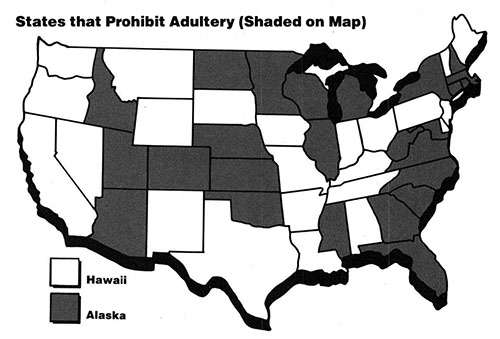Casting the First Stone
After reaching a plea-bargaining agreement with the district attorney in Ashland, Wisconsin, Donna E. Carroll will perform 40 hours of community service for committing a felony. Her crime: adultery.

Carroll's case began last summer. During a bitter divorce and child custody battle, her husband, Robert, accused her of having an affair with another man and filed a criminal complaint. Under Wisconsin law, a married person who has sexual intercourse with someone other than his or her spouse or an unmarried person who has sexual intercourse with someone married is guilty of adultery.
Carroll denied that she had committed adultery, but District Attorney Robert E. Eaton decided to act on her husband's complaint and filed charges against Carroll. "The law is on the books," says Eaton. "There was strong evidence presented to me of a violation. For me to decide not to prosecute would be, in effect, to declare the statute null and void. That is not my role as district attorney." Had her case gone to trial, Carroll could have faced a maximum penalty of two years in prison and a $10,000 fine.
Currently, 26 states and the District of Columbia prohibit adultery, but the penalties vary widely. In Michigan, it is a felony that can bring up to four years in prison. In New Hampshire, the crime is punishable by 39 lashes, standing for one hour on the gallows with a noose around the neck, or one year in prison. But in Maryland, it is a misdemeanor that brings only a $10 fine.
Some studies indicate that 30 percent to 70 percent of married people have engaged in extramarital sex. Prosecutors often add adultery to prostitution charges, but prosecutions for simple adultery are rare.
This article originally appeared in print under the headline "Casting the First Stone."


Show Comments (0)